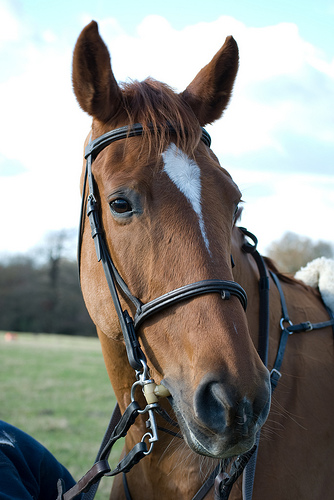Simply put, equine law encompasses all regulations at a federal, state or local level that deal with horses, their owners and riders. They are designed to protect:
- Horses – to ensure humane treatment
- Horse owners – to protect them from frivolous law suits
- Horse riders – to afford them a reasonable expectation of safety
The purpose of each category is to define areas of responsibility and minimize injury and loss due to negligence or lack of understanding.
For more than 40 years the United States government has entrusted a division of the Department of Agriculture called the Animal and Plant Health Inspection Service, or APHIS, with the stewardship of horses through the Horse Protection Act. These regulations allow inspection of horses and their facilities in shows and exhibitions to ensure that there are no signs of soaring practices or other inhumane activities. Each state passes its own regulations with respect to animal welfare. Besides deliberate acts of cruelty, horses must be protected from harm related to inappropriate stabling conditions, adequate water, food and veterinary care. A wise horse owner will make himself or herself aware of these regulations as well as rules about transporting horses.
Millions of equestrians around the country fondly remember their first ride on a carnival pony or a stable or summer camp horse. But the liability associated with an activity as full of variables as horseback riding can be so daunting as to eliminate the business of providing such riding opportunities or providing riding lessons. A simple sign declaring that you ride at your own risk is not adequate. These horse owners need protection from frivolous law suits which would destroy the business. By the same token, a novice rider should have a reasonable expectation of equipment in good condition and horses that are adequately trained for rider safety. Definitions of responsibility are important to the protection of both rider and owner. The rider should be educated to his own risks and responsibilities before he is ever allowed to mount a rental horse.
Another area of equine law deals with the interaction of people doing business with horses. This includes leasing horses, boarding horses, transporting horses and providing training or lessons. Because these regulations vary dramatically from state to state, it is very important for horse owners to be well-informed by reading and attending professional seminars. But ultimately, when it comes to creating or signing a contract, equestrians should consult an attorney specializing in the field. The rewards of working with horses are immeasurable, but the risk of liability is high. Equine law works to protect both horses and professionals. An attorney specializing in equine law can help make sure the law works to protect you!
Chuck Stevens is a part of an elite team of writers who have contributed to hundreds of blogs and news sites. Follow him @chuckstevens12.

